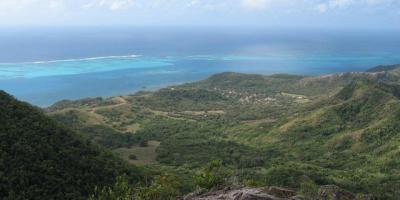
Participants from Africa, Asia-Pacific, Latin America and the Caribbean joined workshops, organized by IDLO in The Hague, Guatemala and Bali, to explore legal frameworks for implementing the Nagoya Protocol.
The Nagoya Protocol, which came into force in October 2014, is a global agreement that calls for benefits arising from the use of genetic resources to be shared with the country providing these resources, a concept known as "access and benefit sharing", or ABS.
Genetic resources are the raw ingredients for innovation in medicine, biotechnology, cosmetics, food and beverages, and more.
Many countries are now actively engaged in making the Protocol operational, yet a challenge in the Protocol’s implementation is building the necessary capacity to enable countries to establish new or amend existing domestic ABS legislative, administrative and policy measures.
IDLO and the Secretariat of the Convention on Biological Diversity (SCBD), with funding from the Japan Biodiversity Fund, hosted a joint capacity-building program to support the implementation of the Nagoya Protocol.
During the five-day workshops, participants had the opportunity to review core knowledge they had gained from e-learning modules studied prior to the course, apply this to their country contexts, probe into more complex areas, and learn from each other.
As a leading region on ABS issues, African participants from Ethiopia, Namibia and South Africa shared examples of progress already made. South Africa presented its innovative Guidelines for the Socio-Economic Impact Assessment System that have allowed the country to integrate ABS issues across government policies and demonstrate the key role that ABS can play in meeting important social and economic goals.
Countries who were just getting started expressed appreciation for the opportunity to learn about the work of others and to work with experts and colleagues to define the next steps for implementation in their country.
Benedicta Falana from Nigeria acknowledged that “before coming, I had little hope for access and benefit sharing (ABS) in my country, but now I realize how much is being done and where Nigeria can go next to make progress in its implementation of the Protocol.”
While progress in the Asia-Pacific region on access and benefit-sharing has tended to be slower than in the African region, some countries have emerged as regional leaders, including Malaysia with its comprehensive draft ABS legislation and previous experience at regulating ABS at the state-level, Bhutan with its ABS national policy and vision linking ABS to the well-being of its people, and the Philippines, the world’s first country with a national ABS law.
“Training (courses) like this are so important to enable countries to share their experiences and learn from each other,” praised Martha Mphatso Kalemba from Malawi, “access and benefit sharing will be important for Malawi’s sustainable development.”
In the Latin America workshop, participants reflected a high level of knowledge and experience in “access and benefit sharing”. Highlights included Brazil's recently updated ABS legislation after years of consultations and building political will, Costa Rica sharing lessons from their decades of granting ABS agreements – more than any other country in the region, and Peru presenting details of their innovative institution that checks for use (authorized or unauthorized) of that country's genetic resources in patent applications around the world. Andrés Valladolid from Peru explained the shift in their approach 'our focus used to be on detecting biopiracy but now we are creating measures to incentivize innovation and ensure fair benefit sharing.' Meanwhile Honduras enjoyed the opportunity to ask questions of others, as a country that is just beginning the process of designing legal frameworks. Colombian representative, Paula Rojas, described the challenge for such countries 'in Colombia, success in ABS requires more than just Environment Ministries. It concerns several sectors and requires collaboration and strong institutions.'
Video: further insight into our Guatemala-based workshop with partner CFCE Law Antigua Guatemala.

